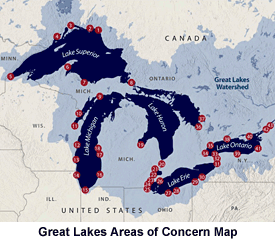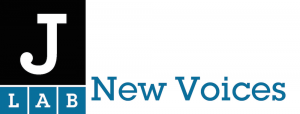 GreatLakesWiki.org launched on Jan. 31, 2007 with a number of news and blog outlets picking up the announcement — and a few critics worried that Michigan State’s “Journalism College has put its reputation at stake” by inviting ordinary citizens to contribute news and information.
GreatLakesWiki.org launched on Jan. 31, 2007 with a number of news and blog outlets picking up the announcement — and a few critics worried that Michigan State’s “Journalism College has put its reputation at stake” by inviting ordinary citizens to contribute news and information.
The wiki seeks to collect “the experience and knowledge of a network of citizens, including scientists, hunters, policymakers, environmentalists, anglers, lakeside property owners, boaters, business operators and others who care about the Great Lakes region,” according to the site’s mission statement.
Within a month of the launch, the project’s leaders had tracked more than 500 edits to the site, 84 registered users and several thousand anonymous visits.
The site lists 32 non-profit organizations working on Great Lakes issues and half of those organizations had posted information about their groups.
Users could read about organic farming in the Commerce section. Or view a map of the Lakes’ environmental Areas of Concern.
Users could also post information about the culture, recreation, geography and ecology of the Great Lakes.
In addition to distributing news releases via e-mail and MSU’s public relations department, the project published a color brochure that was mailed to 46 leaders of citizen groups involved with the most polluted areas of the Lakes. The brochure was also sent to 140 colleges and universities with journalism programs in the region.
“Our hope with this effort is to offer the site as a publishing platform for schools interested in experimenting with non-traditional forms of journalism,” said site creator Cliff Lampe.
The site is also placing ads on Google, so during a keyword search for “Great Lakes,” the wiki will be called up. Lampe says he “knows that for every 100 who come to the site, one will come back,” so he is trying to make those people who do visit the site “more sticky.”
While there has been much positive reaction to the site, some critics expressed concern about allowing “contributors to post information and commentary without prior editing with regard to fairness or accuracy. “
Noted one respondent: “If MSU can attract quality contributors at the right scale … the wiki service may enjoy credibility and provide a valuable resource. If MSU attracts pranksters and paid trolls, the project will tumble under its own weight toward a well-deserved demise.”
While the site only uses wiki technology and has no affiliation with Wikipedia, one Wikipedia and Wikimedia administrator has offered help in ironing out some of the technical issues.
A big challenge going forward is to help teach potential contributors how to post on the wiki, which has a “steeper learning curve” than posting on a blog-driven site, Lampe said. To address this, the site has developed a help system with screenshots and simple instructions and they plan to arrange workshops with local environmental groups to train people to use the site.
The project also plans to offer one of five $600 digital cameras to those people who contribute frequently and emerge as leaders within their “area of concern.”
In the upcoming months, Lampe hopes the wiki will have established a regular contributor base of at least 150 people.



